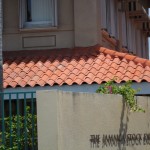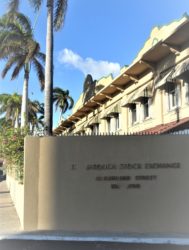Business has been great for Stationery and Office Supplies (SOS) over the past two years, with sales rising 55 percent over 2021 last year and 16 percent over the covid-19 affected 2020 in 2021 and is up 22 percent for the first quarter to March this year.
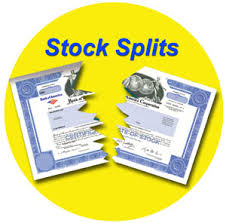
The surge in sales drove pretax profit excluding one-time income, up 34 over last year on top of a 151 surge in 2022 over 2021. While the company has started 2023 positively, reports are that its first shipment of goods to Cayman Island, which is expected to be an ongoing trade, has been sent off and that, in addition to its connection with Trinidad and Tobago that started in the latter part of 2022 and reports indicate that arrangement is in place for regular shipments to a third Caribbean country.
The stock had nearly two million units on offer up to June 5 at just under $16, but investors aggressively bought 1.5 million on that day and the stock has since seen limited supply on offer. The $20 price level is believed to be the trigger point for the directors to seriously consider recommending splitting the stock to shareholders. The stock price hit a 52 weeks’ high on Monday when it traded a small quantity at $21 and closed there again on Tuesday after 10,230 shares were traded. The stock price is up 22 percent this year and trades at a PE of 11 times 2023 earnings, but has more room to grow, with a PE of 15 putting the price within reach of $30.

SOS executives
More than 91 percent of the issued share are in the hands of the top 10 shareholders, thus reducing the potential supply that can come to the market with only 250 million shares issued. At the close of Tuesday’s trade, stocks on offer below $25 amount to 7,200 units, with 80,000 on offer at $25. After that, the bids start at $35.
Stock splits are popular among investors in Jamaica, with each announcement accompanied by a hike in the price of the relevant stock.
The door is left open for a resolution to be put to the company’s upcoming AGM for a stock split, as the annual report filed with the JSE stated that the date of the AGM was to be determined.
 Initial public offers have been extremely popular amongst investors who have made good money from the vast majority of them. Come this summer investors will get five more opportunities to invest in IPOS.
Initial public offers have been extremely popular amongst investors who have made good money from the vast majority of them. Come this summer investors will get five more opportunities to invest in IPOS.
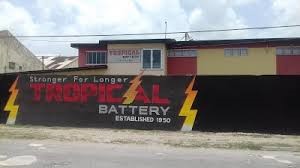
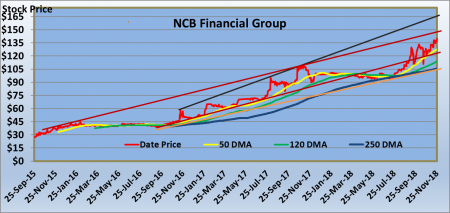
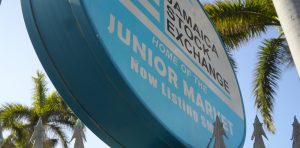 Trading on the Junior Market closed on Tuesday with 22 securities changing hands, resulting in a more than doubling of trading levels over Monday with an exchange of 2,217,305 units valued at $9,814,861 compared to 904,019 units valued at $4,463,382 on Monday.
Trading on the Junior Market closed on Tuesday with 22 securities changing hands, resulting in a more than doubling of trading levels over Monday with an exchange of 2,217,305 units valued at $9,814,861 compared to 904,019 units valued at $4,463,382 on Monday. 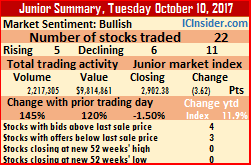 The average volume and value for the month to date amounts to 78,790 units valued at $343,165, previously 74,618 units valued at an average of $323,637. In contrast, September closed with average of 116,176 units valued at $538,652 for each security traded. Trading ended with the market sentiments looking mixed for Wednesday, as 4 stocks ended with bids higher than their last selling prices and 2 with lower offers.
The average volume and value for the month to date amounts to 78,790 units valued at $343,165, previously 74,618 units valued at an average of $323,637. In contrast, September closed with average of 116,176 units valued at $538,652 for each security traded. Trading ended with the market sentiments looking mixed for Wednesday, as 4 stocks ended with bids higher than their last selling prices and 2 with lower offers.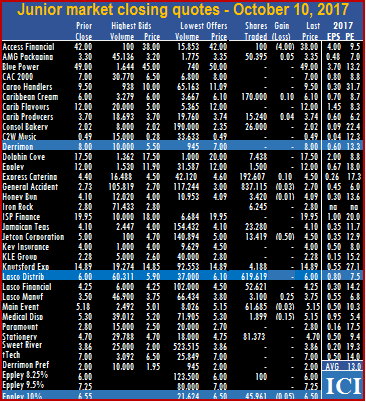 Consolidated Bakeries settled at $2.02, with 26,000 units. Dolphin Cove closed at $17.50, with 7,438 stock units, Eppley concluded trading at $12, with 1,500 shares changing hands, Express Catering traded 10 cents higher at $4.50, with 192,607 shares, General Accident fell 3 cents at to $2.70, with 837,115 stock units traded, Honey Bun traded with a loss of 1 cent at $4.09, with 3,420 stock units. Iron Rock traded at $2.80, with 6,245 units, Jamaican Teas settled at $4.10, with 23,280 stock units, Jetcon Corporation closed with a loss of 50 cents at $4.50, with 13,419 stock units, Knutsford Express concluded trading at $14.89, with 4,188 stock shares. Lasco Distributors traded 619,619 units at $6, Lasco Financial settled at $4.25, with 52,621 shares, Lasco Manufacturing ended 25 cents higher at $3.75, trading 3,100 stock units, Main Event finished with a loss of 3 cents at $5.15, exchanging 61,685 shares, Medical Disposables lost 15 cents at $5.15, trading 1,899 shares and Stationery and Office closed at $4.70, trading 81,373 stock units. In the junior market preference segment, Eppley settled with a loss of 5 cents at $6.50, with 45,961 units changing hands.
Consolidated Bakeries settled at $2.02, with 26,000 units. Dolphin Cove closed at $17.50, with 7,438 stock units, Eppley concluded trading at $12, with 1,500 shares changing hands, Express Catering traded 10 cents higher at $4.50, with 192,607 shares, General Accident fell 3 cents at to $2.70, with 837,115 stock units traded, Honey Bun traded with a loss of 1 cent at $4.09, with 3,420 stock units. Iron Rock traded at $2.80, with 6,245 units, Jamaican Teas settled at $4.10, with 23,280 stock units, Jetcon Corporation closed with a loss of 50 cents at $4.50, with 13,419 stock units, Knutsford Express concluded trading at $14.89, with 4,188 stock shares. Lasco Distributors traded 619,619 units at $6, Lasco Financial settled at $4.25, with 52,621 shares, Lasco Manufacturing ended 25 cents higher at $3.75, trading 3,100 stock units, Main Event finished with a loss of 3 cents at $5.15, exchanging 61,685 shares, Medical Disposables lost 15 cents at $5.15, trading 1,899 shares and Stationery and Office closed at $4.70, trading 81,373 stock units. In the junior market preference segment, Eppley settled with a loss of 5 cents at $6.50, with 45,961 units changing hands.




